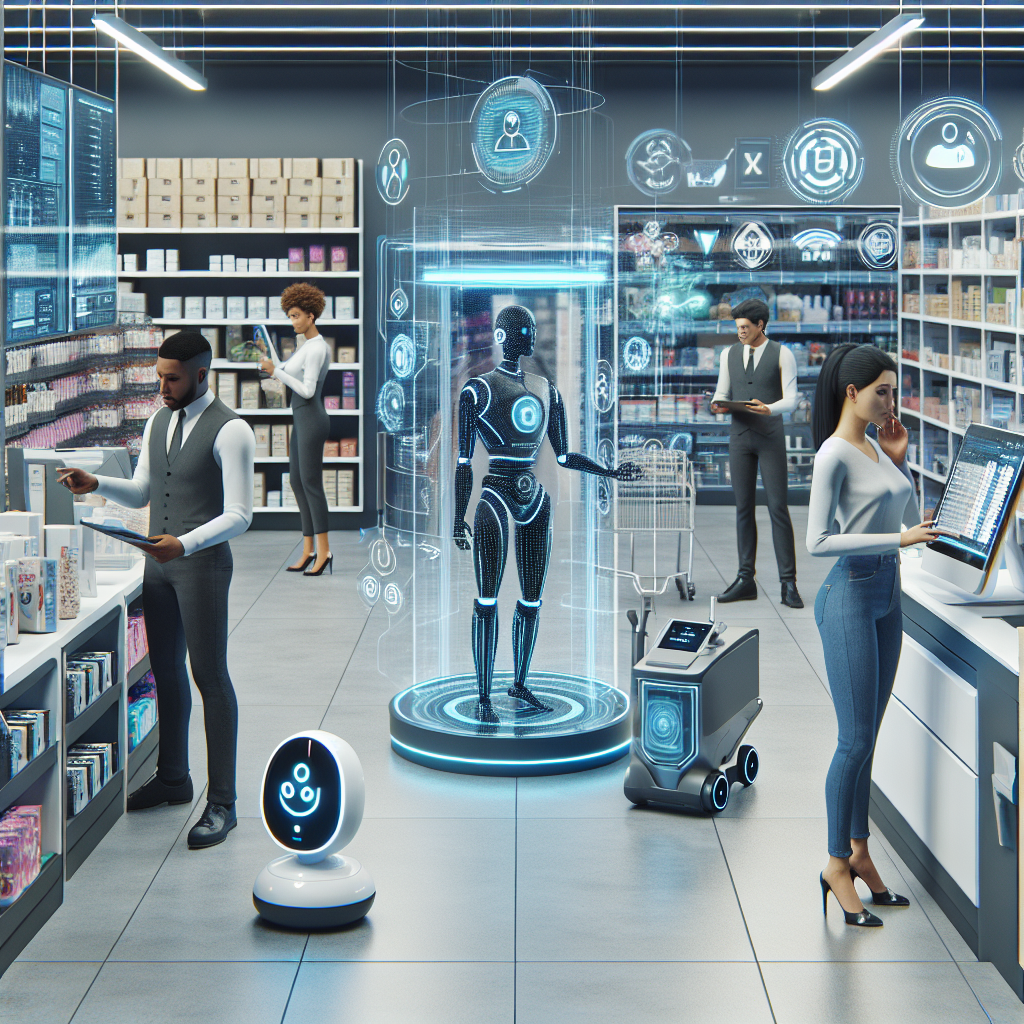Introduction
Artificial Intelligence (AI) has emerged as a game-changer in the retail industry, transforming the way businesses operate and interact with customers. From personalized shopping experiences to inventory management and supply chain optimization, AI integration is reshaping the retail landscape in unprecedented ways. In this article, we will explore how AI is revolutionizing the retail industry and its impact on businesses and consumers.
AI in Customer Experience
One of the most significant impacts of AI in the retail industry is its ability to enhance customer experiences. AI-powered chatbots and virtual assistants are being used by retailers to provide personalized recommendations, answer customer queries, and offer real-time assistance. These virtual assistants can analyze customer data, preferences, and behavior to provide tailored product recommendations, leading to higher conversion rates and customer satisfaction.
AI is also being used to improve the in-store shopping experience. Retailers are leveraging AI technologies such as facial recognition and computer vision to track customer movements, analyze shopping patterns, and optimize store layouts. This data-driven approach allows retailers to better understand customer behavior and preferences, leading to more personalized and engaging shopping experiences.
AI in Inventory Management
Another area where AI is reshaping the retail industry is inventory management. Traditional inventory management systems are often plagued by inefficiencies and inaccuracies, leading to overstocking or stockouts. AI-powered systems, on the other hand, can analyze historical sales data, seasonal trends, and market demand to predict future sales and optimize inventory levels.
AI algorithms can also help retailers automate the replenishment process by sending real-time alerts when inventory levels are running low. This proactive approach not only reduces the risk of stockouts but also minimizes excess inventory, leading to cost savings and improved profitability.
AI in Supply Chain Optimization
AI is also revolutionizing supply chain management in the retail industry. By leveraging AI technologies such as predictive analytics and machine learning, retailers can optimize their supply chain operations, reduce lead times, and improve overall efficiency. AI algorithms can analyze vast amounts of data to identify bottlenecks, forecast demand, and optimize routing and logistics, leading to faster deliveries and reduced costs.
AI-powered supply chain optimization also enables retailers to better respond to disruptions such as natural disasters, labor strikes, or global pandemics. By modeling various scenarios and simulating different outcomes, retailers can develop contingency plans and mitigate risks, ensuring uninterrupted supply chain operations.
FAQs
Q: How can AI help retailers improve customer engagement?
A: AI-powered chatbots and virtual assistants can analyze customer data to provide personalized recommendations, answer queries, and offer real-time assistance, leading to higher customer satisfaction and engagement.
Q: How can AI help retailers optimize inventory management?
A: AI algorithms can analyze historical sales data, market demand, and seasonal trends to predict future sales and optimize inventory levels. AI-powered systems can also automate the replenishment process, reducing the risk of stockouts and excess inventory.
Q: How can AI help retailers optimize their supply chain operations?
A: AI technologies such as predictive analytics and machine learning can help retailers optimize routing and logistics, forecast demand, and identify bottlenecks in the supply chain. By leveraging AI-powered supply chain optimization, retailers can reduce lead times, improve efficiency, and respond to disruptions more effectively.
Conclusion
AI integration is reshaping the retail industry, revolutionizing the way businesses operate and interact with customers. From personalized shopping experiences to inventory management and supply chain optimization, AI technologies are transforming every aspect of the retail landscape. By leveraging AI-powered solutions, retailers can improve customer engagement, optimize inventory management, and streamline supply chain operations, leading to increased profitability and competitive advantage. As AI continues to evolve and advance, its impact on the retail industry is only expected to grow, shaping the future of retail in unprecedented ways.

